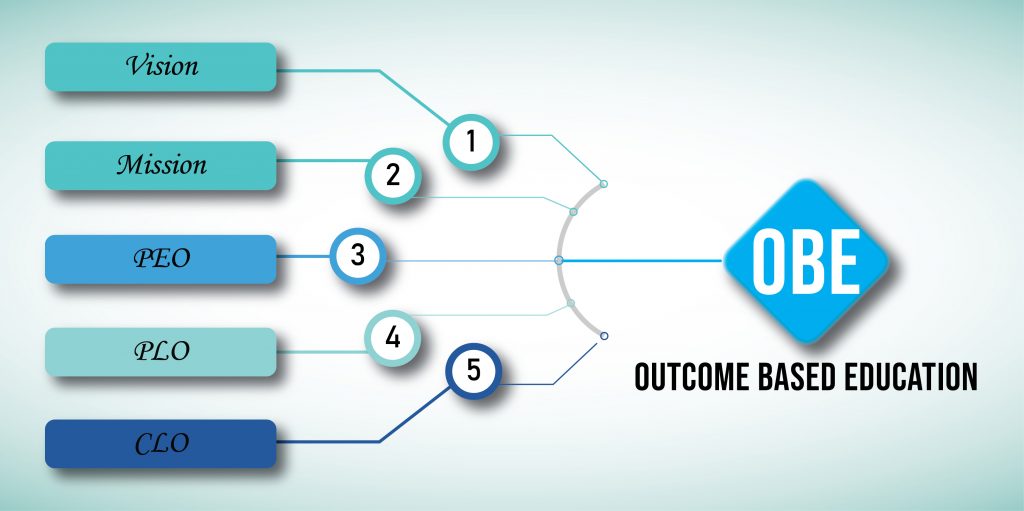The Department of Software Engineering (DSE) is committed to high quality education and promoting an innovative culture in the field of Software Engineering. DSE has highly qualified and experienced faculty member who share the knowledge of Software standards and practices with students. Students are always encouraged for innovation and new ideas.
Software engineering aims to use the latest technologies to develop easy software solutions to the complex problem. DSE provides familiarity with the basic needs & processes in the various software application domains, with the principles of good Software Engineering practice with the underline concepts and principles of computer sciences.

It is my pleasure to welcome you to the Department of Software Engineering (DSE). We at DSE offer degree program in Software Engineering. Since its inception, the Department is playing vital role in developing skilled software professionals. Our mission is to discover new ideas based on ICT, and apply them for the welfare of the nation. Our every effort is dedicated to establish knowledge oriented learning environment where our competent faculty members offer their best output and students are encouraged to show their best.
Our courses are unique blend of the core principles of the discipline and new advances in the fast-moving world of software and information technology. We are rightly proud of our academic performance, but at DSE learning means much more than the quest for excellent grades. Extracurricular activities are evenly important here, and we are really aware of our responsibility to prepare young people who can enter the professional life as confident, helpful and responsible citizens. There are efforts of good people behind every successful institution, and I believe that our teacher and students are the best to achieve any height of excellence.
Transformation to excellence through holistic education.
The University of Azad Jammu & Kashmir is committed to quality education, research values-driven mentorship through innovations to serve the society and the changing world.
Incubate Graduates capable of advance research and leadership positions in the broad aspects of software engineering as well as to meet the increasing demands for skilled educated software designers and developers in a society with a fabric of increasingly interwoven technology.
The mission of department of software engineering is to focus on imparting high quality education to prepare innovative and ethical graduates who acquire critical thinking, soft skills, life-long learning and make significant contribution in research to serve the society.
The Software Engineering (SE) program at UAJ&K is based on three PEOs:
To Equip Graduates with core computing and engineering concepts in the field of soft-ware Engineering.
To produce highly professional engineers accouter with problem-solving skills to tackle real world challenges and advanced level research problems.
To produce graduates with effective soft skills to serve the society
There are 12 program learning outcomes for the BSc Software Engineering Program:
| Program Learning Outcomes | Description | |
|---|---|---|
| PLO 1 | Engineering Knowledge | An ability to apply knowledge of mathematics, science, engineering fundamentals and an engineering specialization to the solution of complex engineering problems. |
|
PLO 2
|
Problem Analysis | An ability to identify, formulate, research literature, and analyze complex engineering problems reaching substantiated conclusions using first principles of mathematics, natural sciences and engineering sciences. |
| PLO 3 | Design / Development of Solutions | An ability to design solutions for complex engineering problems and design systems, components or processes that meet specified needs with appropriate consideration for public health and safety, cultural, societal, and environmental considerations. |
| PLO 4 | Investigation | An ability to investigate complex engineering problems in a methodical way including literature sur-vey, design and conduct of experiments, analysis and interpretation of experimental data, and synthesis of information to derive valid conclusions. |
| PLO 5 | Modern Tool Usage |
An ability to create, select and apply appropriate techniques, resources, and modern engineering and IT tools, including prediction and modelling, to complex engineering activities, with an understanding of the limitations.
|
| PLO 6 | The Engineer and Society | An ability to apply reasoning informed by contextual knowledge to assess societal, health, safety, legal and cultural issues and the consequent responsibilities relevant to professional engineering practice and solution to complex engineering problems. |
| PLO 7 | Environment and Sustainability | An ability to understand the impact of professional engineering solutions in societal and environ-mental contexts and demonstrate knowledge of and need for sustainable development. |
| PLO 8 | Ethics | Apply ethical principles and commit to professional ethics and responsibilities and norms of engineering practice. |
| PLO 9 |
Individual and Teamwork
|
An ability to work effectively, as an individual or in a team, on multifaceted and /or multidisciplinary settings. |
| PLO 10 | Communication | An ability to communicate effectively, orally as well as in writing, on complex engineering activities with the engineering community and with society at large, such as being able to comprehend and write effective reports and design documentation, make effective presentations, and give and receive clear instructions. |
| PLO 11 | Project Management | An ability to demonstrate management skills and apply engineering principles to one’s own work, as a member and/or leader in a team, to manage projects in a multidisciplinary environment. |
| PLO 12 | Lifelong Learning | An ability to recognize importance of and pursue lifelong learning in the broader context of innovation and technological developments. |
The mapping of PEOs with the Vision and Mission of the UAJ&K is given below:
| University Vision and Mission Statements | PEO 1 | PEO 2 | PEO 3 | |
|---|---|---|---|---|
| Vision | Transformation excellence through holistic education | ✓ | ✓ | ✓ |
| Mission | The University of Azad Jammu & Kashmir is committed to quality education, research values-driven mentorship through innovations to serve the society and the changing world. | ✓ | ✓ | ✓ |
The mapping of PEOs with the Vision and Mission of the department of software engineering is given below:
| Department Vision and Mission Statements | PEO 1 | PEO 2 | PEO 3 | |
|---|---|---|---|---|
| Vision | Incubate Graduates capable of advance research and leadership positions in the broad aspects of software engineering as well as to meet the increasing demands for skilled educated software designers and developers in a society with a fabric of increasingly interwoven technology. | ✓ | ✓ | ✓ |
| Mission | The mission of Department of Software Engineering is to focus on imparting high quality education to prepare innovative and ethical graduates who acquire critical thinking, soft skills, lifelong learning and make significant contribution in research to serve the society. | ✓ | ✓ | ✓ |
Mapping of the PLOs to PEOs is given below:
| PEC Graduate Attributes / Program Learning Outcomes | PEOs | |||
|---|---|---|---|---|
| PEO1 | PEO2 | PEO3 | ||
| 1 | Engineering Knowledge | ✓ | ✓ | |
| 2 | Problem Analysis | ✓ | ✓ | |
| 3 | Design/Development of Solutions | ✓ | ✓ | |
| 4 | Investigation | ✓ | ||
| 5 | Modern Tool Usage | ✓ | ✓ | ✓ |
| 6 | The Engineer and Society | ✓ | ✓ | |
| 7 | Environment and Sustainability | ✓ | ✓ | |
| 8 | Ethics | ✓ | ||
| 9 | Individual and Teamwork | ✓ | ||
| 10 | Communication | ✓ | ✓ | |
| 11 | Project Management | ✓ | ✓ | |
| 12 | Lifelong Learning | ✓ | ✓ | |
As a central feature in the accreditation of engineering degrees Department of Software engineering is implementing Outcome based Education (OBE) for assessing and evaluating the learning of students to improve the employability of the graduating engineers and to tap the huge global opportunities for engineering talent.
